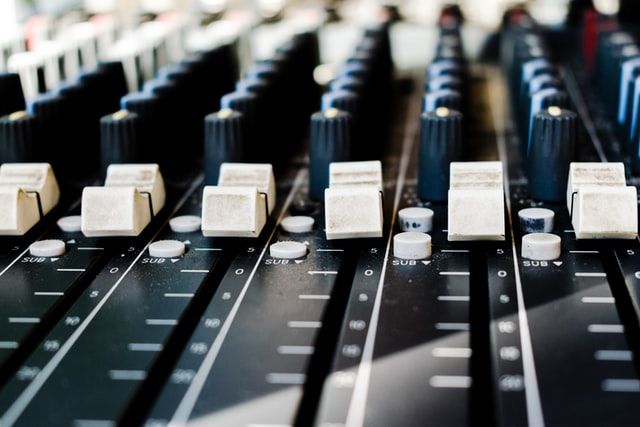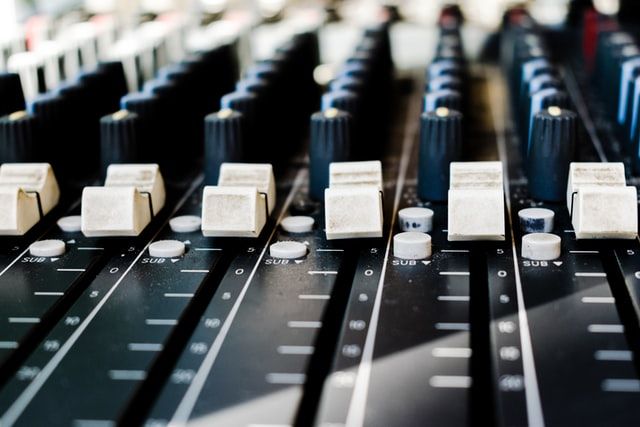
The Copyright Royalty Board announced the headline rate will increase to 15.1% from 11.4% in royalties paid by streaming services to publishers for the 2018-22 period. Streaming services Spotify, Amazon Music, YouTube/Google, and Pandora appealed the rate decision in 2019. The rates for the 2023-27 period may see an initial decision from the CRB around Labor Day.
On Tuesday, members of the European Parliament approved the Digital Services Act and the Digital Markets Act, establishing clear rules and regulations for online services operating in the European Union. These companies will now need to allow more room for third party services to operate freely and to provide access to the data they generate on these platforms.
New Zealand is extending its music copyright protection from 50 to 70 years, according to government officials. The decision was negotiated as part of the country’s newly announced trade agreement with the European Union. The extension will presumably cover both sound recordings and underlying compositions.
In this newsletter:
- Copyright Royalty Board Confirms Streaming Royalty Raise for Publishers and Songwriters
- European Parliament Passes Law Setting Rules For Online Services
- New Zealand Expands Music Copyright Protection to 70 Years Under EU Trade Deal
- SoundExchange Sues Slacker and Parent Company LiveOne Over Unpaid Royalties to Creators
- Deezer Goes Public But Endures Bumpy First Day After Listing
- Kanye West Sued for Allegedly Sampling Chicago House Legend Marshall Jefferson’s Music Without Permission
Now, the details...
Compiled by Heidi Seo
Exploration Weekly - July 8, 2022
Copyright Royalty Board Confirms Streaming Royalty Raise for Publishers and Songwriters
In a big win for the publishing and songwriting community, the Copyright Royalty Board reaffirmed the 15.1% headline rate increase in royalties paid by streaming services to publishers for the 2018-22 period. The rate was decided in 2018, but streaming services Spotify, Amazon Music, YouTube/Google and Pandora appealed the following year, arguing that the increase will make their business models untenable in light of the billions of dollars that they already pay in royalties. While the decision was not immediately released publicly, sources and NMPA president/CEO David Israelite shared that the headline rate will increase to 15.1% from 11.4% for that period, as previously decided. The decision comes ahead of a similar decision for the 2023-27 period, for which the NMPA has argued for a 20% headline rate. These rates may be released with an initial decision expected from the CRB shortly after Labor Day.
European Parliament Passes Law Setting Rules For Online Services
Members of the European Parliament (MEPs) approved the Digital Services Act on Tuesday in its first reading with 539 votes in favor. In the same voting session, held in Strasbourg, France, the Parliament also adopted the Digital Markets Act (DMA), which passed with 588 votes in favor. Both establish clear rules and regulations for all online services operating in the European Union, including ticket resale sites like Viagogo and StubHub, social media platforms such as Twitter and Facebook that heavily feature music content, and tech giants like Apple, Amazon and Google. The new laws will force those companies to allow third party services to operate more freely within their platforms. Companies will also be required to provide other businesses, such as apps, access to the data they generate in the dominant platform, allowing smaller services to contact their customers directly.
New Zealand Expands Music Copyright Protection to 70 Years Under EU Trade Deal
New Zealand is set to extend its music copyright protection from 50 years to 70 years, government officials have announced. The 20-year extension was negotiated as part of the Oceania nation’s newly announced trade agreement with the European Union. It will presumably cover both recordings and underlying compositions. New Zealand will have up to four years (after the deal goes into effect) to implement the extension, according to the government’s breakdown of the pact.
SoundExchange Sues Slacker and Parent Company LiveOne Over Unpaid Royalties to Creators
US performance rights organization SoundExchange has sued Slacker, Inc. and parent company LiveOne in the US over unpaid royalties owed to performers and rights owners. Music platform Slacker offers both free and subscription-based access to licensed songs via music stations. In the lawsuit, filed in California Central District Court, SoundExchange claims that Slacker stopped paying statutory royalties to creators in 2017. The organization says that it has been in negotiations with Slacker since 2017 to resolve the outstanding balance, but claims that Slacker has “failed to meet the terms to which the parties agreed”.
Deezer Goes Public But Endures Bumpy First Day After Listing
Deezer has finally gone public via a “SPAC” merger after seven years it announced that it abandoned its plans for an IPO in 2015. The company opened trading on the Euronext Paris exchange at €8.50 per share ($8.72) before the price dived by 35%, recovering to €6.52 later in the morning. A bumpy first day, although as ever with this kind of listing, the true verdict will be delivered over weeks and months, not hours. Deezer’s merger with a company called I2PO included €143m of new funding: a combination of cash held by that company, and ‘PIPE’ (Private Investment in Public Equity, when investors buy shares from a public company below market price) involving existing backers including Access Industries, Universal Music, Warner Music and Orange.
Kanye West Sued for Allegedly Sampling Chicago House Legend Marshall Jefferson’s Music Without Permission
Kanye West has been hit with a lawsuit for the alleged copyright infringement of a sample used in the track Flowers on his Donda 2 album. The legal action was filed in New York on June 29 by Ultra International Music Publishing, citing its client – Chicago House music pioneer Marshall Jefferson. According to the 11-page lawsuit, West’s song Flowers features a sample of Jefferson’s “Instantly recognizable” track, Move Your Body. The lawsuit claims that the use of the Marshall Jefferson sample was “unauthorized” and was “repeated at least 22 times throughout” West’s own song. West released Flowers as part of his album, Donda 2, in February 2022, exclusively via his Stem Player. Ultra is demanding a trial by jury, plus “profits and for damages in such amount as may be determined; alternatively, for maximum statutory damages in the amount of $150,000” per infringement. If each infringement is counted as each one of the sales of Kanye’s Stem player, which the lawsuit states is at least 11,000 units, then the total damages sought could exceed $1.65 billion.
Random Ramblings
- Song Club: a songwriting community from browsers to collectors and cult fans.
- Green Touring: where it stands and why it matters.
- BLACKPINK earned another milestone by becoming the first music artist with 75m YouTube subscribers.
- How “Elvis” composer wove in the King’s vocals with Austin Butler’s performance.
- What are the differences between making sync music and artist music?
Who is Exploration?
Exploration is proud to be the company of choice to administer much of the world’s most important media. We rely on advanced technology and a competent, full-time staff of 50+ people to help our clients and partners better control their data and collect their money.
We wrote a free book on how the music business works.
Download our catalog metadata template, which offers the minimum viable data needed to collect publishing royalties.
To see who is collecting your royalties, request a free copyright audit.

